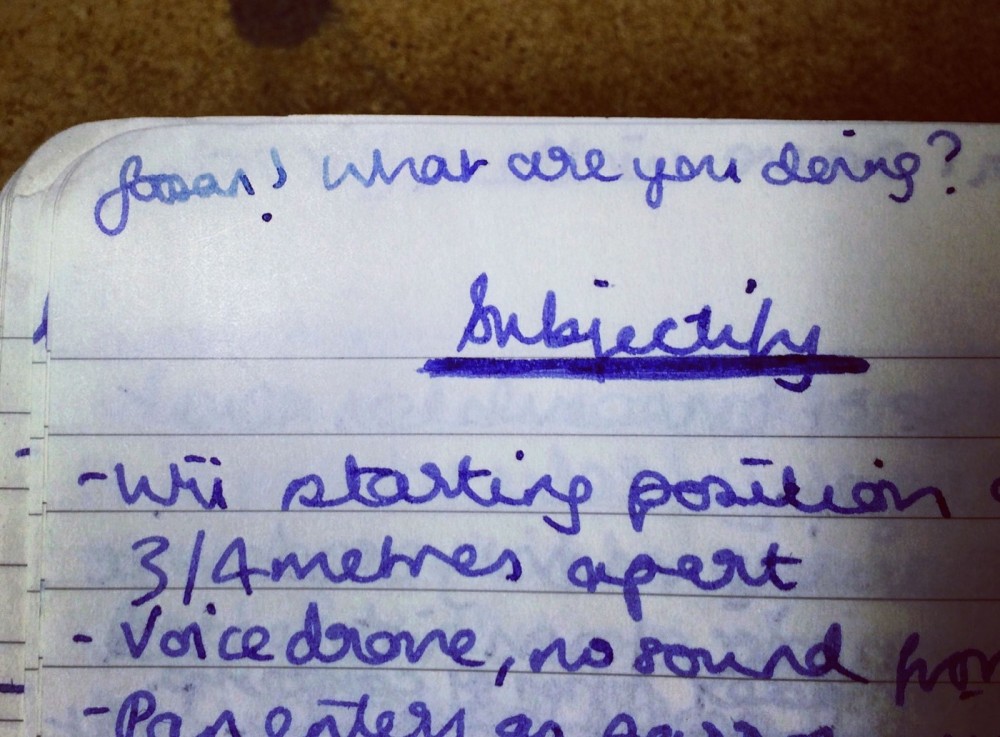On (Un)productivity and Self-loathing, or Being a Freelancer

It seems ironic that for some time I’ve been meaning to write a blog on the difficulties of managing unproductivity as a freelancer, but due to struggles with motivation, some diehard procrastination and a plain lack of ideas, I just hadn’t got round to it. Pertinent also, that my attempt to write about my struggle with self-loathing due to never being as efficient as I would like, has become just another thing to chastise myself about; another unticked entry on my to-do list glaring at me with disapproval.
Of course, my job is not objectively hard. I am a composer, so what I do is neither dangerous nor vital (no-one’s life is in my hands). This is not to say that I think it is without value, but rather that I am aware it is not the end of the world (for anyone except me) if I write a great string quartet or one that is just passable. But I do find my job an incredible and constant challenge.
I feel like I live extended portions of my life in a circle of disappointment: making unrealistic lists of things to achieve; wasting huge amounts of time (doing I have no idea what); failing to be productive; chastising myself for being inefficient; vowing to be better next week and so throwing myself headlong into a new list of things to achieve.
All of this is made more unbearable by the constant self-presentation-as-self-promotion that composers are now forced to engage in. My generation has grown up with the reality that promoting your music (and, crucially, by extension yourself) through social media and networking, both on and offline, is just the way the industry works. So while we languish in our atomised bubbles of attempted creativity, we are constantly forced to present a confident, happy and all round ‘together’ version of ourselves to our peers. This can be particularly irksome when you’ve had a terrible day and are, for the fifth time this week, wondering what is the point of your existence, and a colleague posts an itemised list of their recent musical achievements online. How can you begrudge them this? They, like you, are operating in an incredibly unforgiving business where the only way to keep your head above water is to sustain a reputation as someone who is doing well, thus the careful crafting of said image is an absolute necessity.
Ed Smith recently wrote a brilliant article suggesting that the phrase “it’s been manic” has become a codified proclamation of professional success. We tell people we’re busy as a way of telling them that we’re doing really well, often resorting to this code when we’re feeling most vulnerable and unsure. This has the effect of passing our anxiety onto our interlocutors, who then feel the need to proclaim how overworked they are, and so the cycle continues. I’ve found myself falling into this trap many times, responding to questions of how things are going with a knowing look and simple, “busy”, simply because I did not know how to say, “well actually, I’m a bit confused, have no idea if I even like music anymore and spend quite a lot of my day staring out the window”.
If you’ll oblige me a small neo-Marxist tangent, one of the biggest coups for late capitalism is to convince us all that our value as citizens is intrinsically tied to our ability to work. This discourse finds its contemporary iteration in the Conservative government-led diatribe of Strivers vs. Skivers (I can only imagine the unadulterated joy at Tory HQ when they realised they could make that rhyme). But it can also be traced back at least to the beginnings of New Labour and the redefinition of welfare as workfare – your right to state support dependent on your ability to hold down a job – and maybe even further to eugenic policies in social democracies in the early 20th Century. Living in a society that engages in a constant slippage between your worth as a citizen and your value as a worker, we are all encouraged to work more – or at least claim that we are – in order to justify our existence.
And how on earth does this system of self-valuation function when you have a flexible, unstable job, which relies entirely on self-motivation and is largely poorly remunerated? The answer: you feel like you’re not really part of society at all.
And so, I have decided that the only way to sustain any kind of life while trying to work as a composer is to take myself out of this race. To be really honest about how I feel about my work in the hope that this will allow my friends and colleagues to reveal their anxieties too. To admit when I am limping on through weeks (months!) of unproductivity, terrified that this will be the fallow period that refuses to end, thrusting me into a black eternity that means I will never write a piece of music again. The next time someone asks me how things are going I’ll tell them that I wrote 4 bars before lunch and then rubbed 2 of them out in the afternoon. That today, on 11th June 2015, all I achieved was going to the dentist, replying to some emails, buying a birthday present, booking a French train ticket, sitting in the sun, writing this blog, and going to a concert of Sibelius. And maybe that is just fine.
